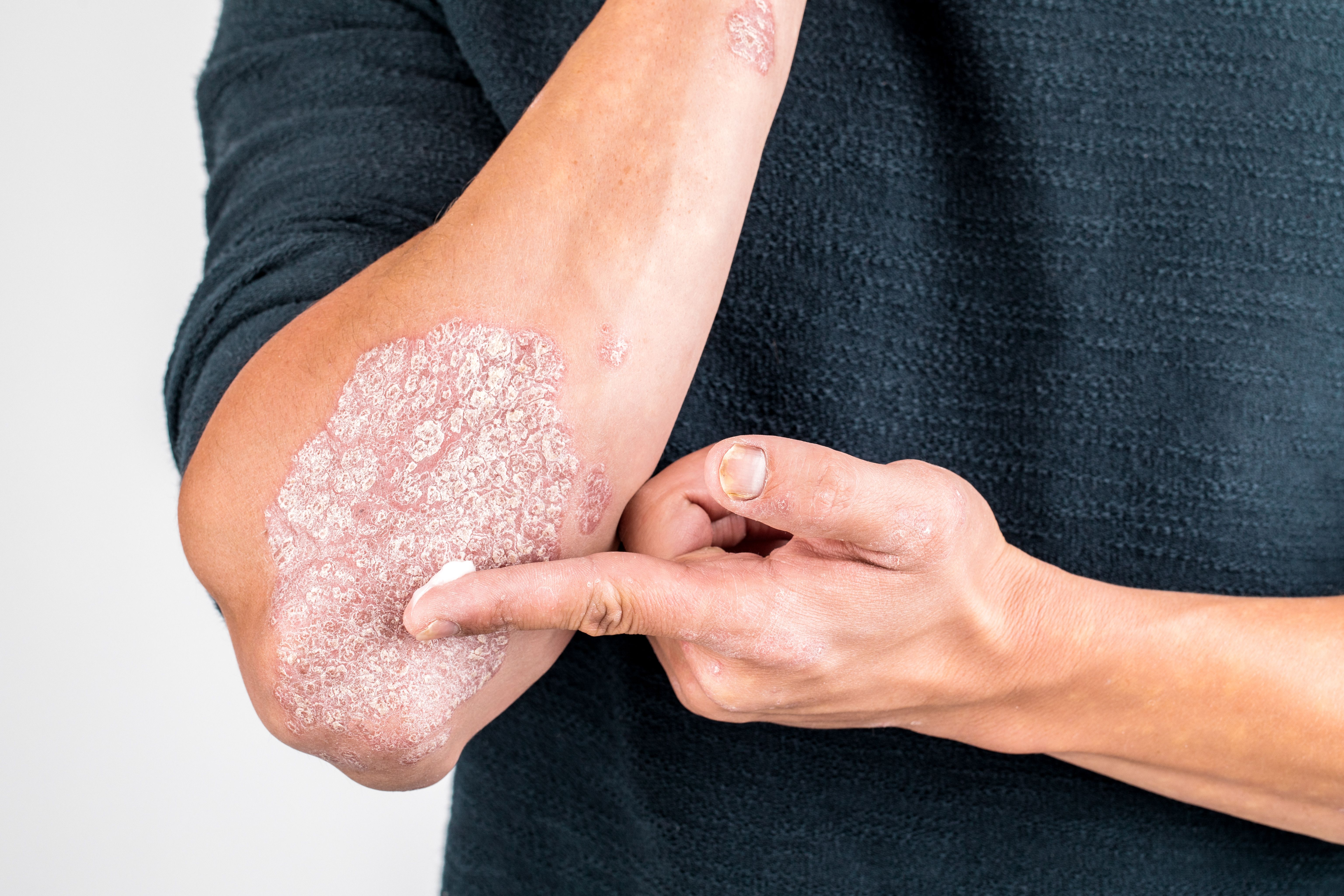- Acne
- Actinic Keratosis
- Aesthetics
- Alopecia
- Atopic Dermatitis
- Buy-and-Bill
- COVID-19
- Case-Based Roundtable
- Chronic Hand Eczema
- Chronic Spontaneous Urticaria
- Drug Watch
- Eczema
- General Dermatology
- Hidradenitis Suppurativa
- Melasma
- NP and PA
- Pediatric Dermatology
- Pigmentary Disorders
- Practice Management
- Precision Medicine and Biologics
- Prurigo Nodularis
- Psoriasis
- Psoriatic Arthritis
- Rare Disease
- Rosacea
- Skin Cancer
- Vitiligo
- Wound Care
Article
FDA approves secukinumab for adults with psoriasis
Author(s):
The FDA announced Wednesday, January 21, that it approved secukinumab (Cosentyx, Novartis Pharmaceuticals Corporation) as a treatment for adults with moderate-to-severe plaque psoriasis.
The FDA announced Wednesday, January 21, that it approved secukinumab (Cosentyx, Novartis Pharmaceuticals Corporation) as a treatment for adults with moderate-to-severe plaque psoriasis.
“This is the most exciting new development in the treatment of psoriasis in recent years,” dermatologist Mark Lebwohl, M.D., tells Dermatology Times in an email responding to the announcement.
“Not only did patients meet the usual endpoint of PASI 75 (75% improvement in the PASI score, a measure of psoriasis severity), but many achieved PASI 90 and even PASI 100. Response to the treatment is rapid, and response is sustained for at least a year,” writes Dr. Lebwohl, professor and chairman of dermatology at the Icahn School of Medicine at Mount Sinai, New York, NY. “This will offer a new option for the treatment of psoriasis to many patients suffering from this chronic debilitating skin disorder.”
Austin, Texas dermatologist and chairman-elect of the National Psoriasis Foundation board of directors, Colby Evans, M.D., agrees secukinumab is an exciting development in psoriasis treatment.
“Secukinumab is interesting because it represents a novel mechanism of action in the treatment of psoriasis, inhibiting IL-17, which is thought to be part of the underlying immune dysfunction,” writes Dr. Evans in an email to Dermatology Times. “In one of the Phase 3 trials, secukinumab improved patients’ psoriasis by 75% or more (PASI 75) in 81.6% of patients, which is excellent efficacy, if these numbers hold up in routine clinical usage. We are fortunate to have a variety of new medications both approved in the last 10 years and coming in the pipeline for psoriasis and psoriatic arthritis. Secukinumab has the potential to be an important part of psoriasis treatment given its new therapeutic target and high level of efficacy in the initial trials.”
Secukinumab, an antibody, binds to interleukin (IL)-17A, which prevents the protein from binding to its receptor and inhibits the inflammatory response involved in plaque psoriasis, according to an FDA press release.
The drug’s safety and efficacy were established in four clinical trials, with a total 2,403 adult subjects with plaque psoriasis. Cosentyx, which is administered by injection, is intended for patients who are candidates for systemic therapy, phototherapy or a combination of both. Patients taking Cosentyx may have a greater risk of infection. Serious allergic reactions have been reported with its use, and the most common side effects include diarrhea and upper respiratory infections. Dermatologists and others prescribing Cosentyx should be cautious about using it to treat patients with a chronic infection or history of recurrent infection, and in patients with active Crohn’s Disease, according to the FDA.
Newsletter
Like what you’re reading? Subscribe to Dermatology Times for weekly updates on therapies, innovations, and real-world practice tips.









